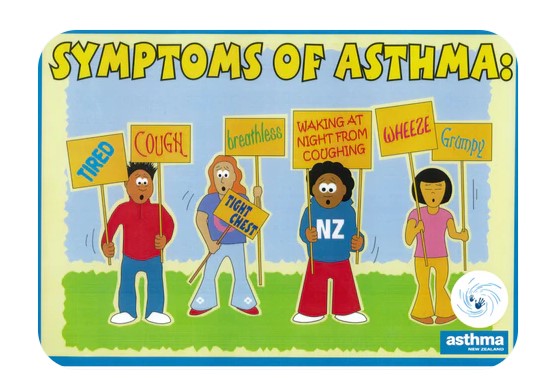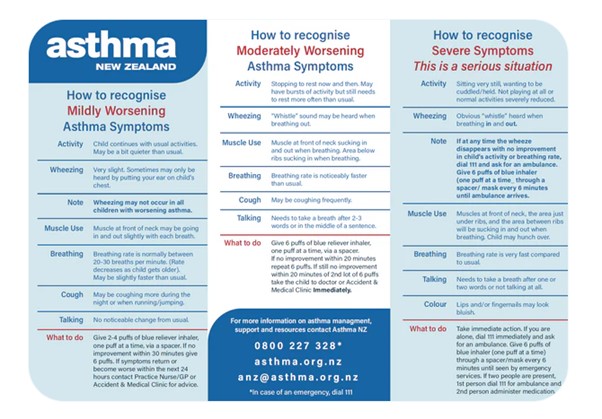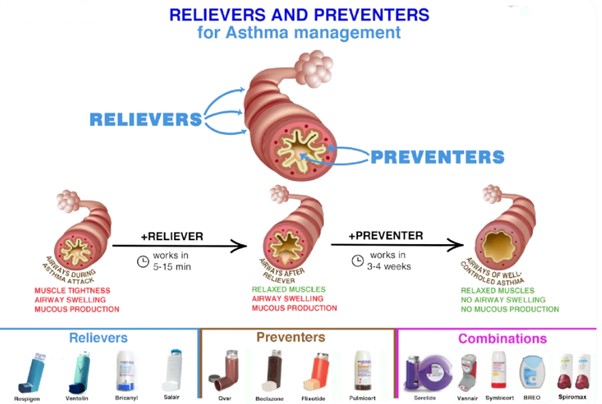Asthma
What is asthma
- Click on the link https://www.asthma.org.nz/pages/what-is-asthma
- Watch the video and read through the information on the page
What to do in an asthma emergency
- Click on the link https://www.asthma.org.nz/pages/what-to-do-in-an-emergency
- Watch the video and read through the information on the page
Asthma symptoms
Worsening signs of asthma

Asthma triggers
- Asthma triggers are substances, conditions, or activities that can cause the symptoms of asthma to worsen or trigger an asthma attack.
- Asthma triggers vary from person to person, and what triggers one person’s asthma may not affect another person at all. Some common asthma triggers include:
- Allergens: Common allergens such as dust mites, pollen, mold, and animal dander can trigger asthma symptoms in many people.
- Irritants: Irritants such as cigarette smoke, air pollution, strong odors, and chemicals can irritate the airways and trigger asthma symptoms.
- Infections: Respiratory infections such as the common cold or flu can trigger asthma symptoms in some people.
- Exercise: Vigorous physical activity or exercise can trigger asthma symptoms, particularly in people with exercise-induced asthma.
- Weather conditions: Changes in temperature or humidity, cold air, or high humidity can trigger asthma symptoms in some people.
- Emotions: different emotional states can trigger asthma symptoms in some people. common emotions such as laughing, anger, stress, anxiety are all emotions which can trigger asthma.
- Medications: Certain over the counters medications such as cough medicine that can contain aspirin, nonsteroidal anti-inflammatory drugs (NSAIDs), and beta-blockers can trigger asthma symptoms in some people.
Exercise induced asthma:
- Click the link https://www.asthma.org.nz/pages/exercise-induced-asthma
- Watch the video and read through the information on the page.
Medications and treatments
- Relievers – A reliever inhaler is taken ‘when needed’ to ease symptoms. The medicine in reliever inhalers (a bronchodilator) relaxes the muscle surrounding the airways. This makes the airways open wider, and symptoms quickly ease as oxygen can enter the airways easier. Usually blue in colour they are used whenever you notice symptoms, or if physical activity is a known trigger, take reliever inhaler before starting the physical activity. If you need to use reliever medicine for asthma symptoms more than two times a week you should see your doctor.
- Preventers – A preventer inhaler is taken every day, twice a day, to prevent symptoms from developing. These are usually brown or orange inhalers and are taken, even when you feel well. This medicine (a corticosteroid) works by reducing the swelling and inflammation in the airways. Taking your preventer each day, helps to keep your asthma under control, as corticosteroids help reduce the inflammation inside the airways. This means you should not need to take reliever medicine most days.

All about spacers
- Click the link https://www.asthma.org.nz/pages/all-about-spacers
- Watch the video and read the information on the page.
